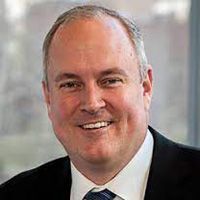Financial Situation Changed Due to COVID? Professional Advice Can Help
The pandemic’s effects can be felt in many ways, some bad (you lost your job or were forced into retirement), some good (your savings grew fat while you were stuck at home). Maybe you put off marriage or buying a home. If you aren’t sure how to move forward, get help.


Profit and prosper with the best of Kiplinger's advice on investing, taxes, retirement, personal finance and much more. Delivered daily. Enter your email in the box and click Sign Me Up.
You are now subscribed
Your newsletter sign-up was successful
Want to add more newsletters?

Delivered daily
Kiplinger Today
Profit and prosper with the best of Kiplinger's advice on investing, taxes, retirement, personal finance and much more delivered daily. Smart money moves start here.

Sent five days a week
Kiplinger A Step Ahead
Get practical help to make better financial decisions in your everyday life, from spending to savings on top deals.

Delivered daily
Kiplinger Closing Bell
Get today's biggest financial and investing headlines delivered to your inbox every day the U.S. stock market is open.

Sent twice a week
Kiplinger Adviser Intel
Financial pros across the country share best practices and fresh tactics to preserve and grow your wealth.

Delivered weekly
Kiplinger Tax Tips
Trim your federal and state tax bills with practical tax-planning and tax-cutting strategies.

Sent twice a week
Kiplinger Retirement Tips
Your twice-a-week guide to planning and enjoying a financially secure and richly rewarding retirement

Sent bimonthly.
Kiplinger Adviser Angle
Insights for advisers, wealth managers and other financial professionals.

Sent twice a week
Kiplinger Investing Weekly
Your twice-a-week roundup of promising stocks, funds, companies and industries you should consider, ones you should avoid, and why.

Sent weekly for six weeks
Kiplinger Invest for Retirement
Your step-by-step six-part series on how to invest for retirement, from devising a successful strategy to exactly which investments to choose.
After almost two years, the pandemic has brought major life changes clouding the path to a stable retirement for many individuals. Americans are struggling with key decisions on investments and estate planning strategies, according to a recent Hearts & Wallets report, while the National Institute for Retirement Security says more than half of Millennials and Gen Xers are more worried about their retirement security than before COVID hit.
Add in significant changes in the employment market, with women being disproportionally affected than men and unprecedented numbers of workers taking part in the “great resignation” along with continued market volatility, and it’s no wonder retirement security feels unattainable for many.
But there is hope. Making some smart money moves right now can get you on solid footing for your retirement. Don’t know where to start? Professional advice — whether from a local financial professional or one offered through your workplace, a phone-based or virtual financial professional, or even digital advice tools — can help.
From just $107.88 $24.99 for Kiplinger Personal Finance
Become a smarter, better informed investor. Subscribe from just $107.88 $24.99, plus get up to 4 Special Issues

Sign up for Kiplinger’s Free Newsletters
Profit and prosper with the best of expert advice on investing, taxes, retirement, personal finance and more - straight to your e-mail.
Profit and prosper with the best of expert advice - straight to your e-mail.
Where to start depends on your personal goals and how the pandemic may have impacted your progress. Here’s what to consider:
If you quit your job as part of the ‘Great Resignation’ …
… You’ll need to make sure the career change doesn’t derail your retirement plan. Think twice before cashing out of your previous workplace retirement plan, which can cost you big in taxes and penalties. Once you’ve landed in your next role, opt into the workplace retirement plan as soon as you’re eligible, contributing at least enough to get an employer match — more if you can. And carefully consider the options for your old 401(k) or similar savings plan.
If your new plan provides access to professional advice, take advantage of it. Or consider speaking to someone outside of the workplace who can provide you advice based on your entire situation.
If you put off milestones, such as buying a house or getting married during the pandemic …
… It’s time to get back on track, but be careful not to overspend to make up for lost time. A financial professional can help look at your current financial picture to create a financial strategy that will help you reach both your short- and long-term goals, or readjust them, as needed.
For newlywed (or soon-to-be-married) couples, a financial professional can serve as a third party to help you set financial goals and navigate the sometimes-tricky waters of combining — or not combining — your finances as you begin building a life together and planning for the future. Financial professionals can also help you make sure you’re adequately protecting yourself from a variety of risks.
If you want advice but aren’t ready for an in-person meeting …
...The virtual environment provides you with a wonderful opportunity to redefine how you would like to interact with your future financial professional. Many workers have come to appreciate the hybrid or completely remote work environment during the pandemic. Consider a professional advice model where you can engage by phone to talk about retirement planning or other financial challenges you’re facing.
If stimulus checks and a less active social life have boosted your savings account …
…You’ll want to make sure you’re reviewing and making progress on your financial goals. If you’ve paid down debt, built adequate emergency savings and are maxing out your retirement savings, you may want to look at your financial wish list — maybe starting a business, buying a second home or retiring early. Either way, you may also want to put your extra cash in savings into investments that match your goals.
Unsure what to do first? If all you need is investing guidance, digital tools can be a good place to start. We have a calculator and be sure to check out the suite of tools on this resource center page. A financial professional can help you prioritize and achieve your goals and, if appropriate, help you allocate your investments.
If COVID forced you into retirement …
… Professional advice can help you stretch your nest egg as far as possible. A financial professional can work with you to determine your best withdrawal strategy, after factoring in the size of your retirement savings, the types of accounts you have (taxable or non-taxable), Social Security and other income sources, and your expenses. They can also talk to you about whether it makes sense to consider working part time or using a guaranteed income product to ensure you never run out of money in retirement.
Remember, regardless of how you arrived at your current situation, taking the right steps now can help you feel confident that a financially secure retirement is in your future. Start today with getting the advice you need.
The Prudential Insurance Company of America, Newark, NJ.
1056430-00001-00
Profit and prosper with the best of Kiplinger's advice on investing, taxes, retirement, personal finance and much more. Delivered daily. Enter your email in the box and click Sign Me Up.

Brad Hearn is the president of Retail Advice and Solutions, which brings together the extraordinary face-to-face advice expertise of Prudential Advisors with Prudential’s Hybrid Advisory team and digital advice capabilities – creating a single organization with end-to-end accountability for delivering holistic financial advice and solutions across the entire advice continuum.
-
 Ask the Tax Editor: Federal Income Tax Deductions
Ask the Tax Editor: Federal Income Tax DeductionsAsk the Editor In this week's Ask the Editor Q&A, Joy Taylor answers questions on federal income tax deductions
-
 States With No-Fault Car Insurance Laws (and How No-Fault Car Insurance Works)
States With No-Fault Car Insurance Laws (and How No-Fault Car Insurance Works)A breakdown of the confusing rules around no-fault car insurance in every state where it exists.
-
 Why Picking a Retirement Age Feels Impossible (and How to Finally Decide)
Why Picking a Retirement Age Feels Impossible (and How to Finally Decide)Struggling with picking a date? Experts explain how to get out of your head and retire on your own terms.
-
 For the 2% Club, the Guardrails Approach and the 4% Rule Do Not Work: Here's What Works Instead
For the 2% Club, the Guardrails Approach and the 4% Rule Do Not Work: Here's What Works InsteadFor retirees with a pension, traditional withdrawal rules could be too restrictive. You need a tailored income plan that is much more flexible and realistic.
-
 Retiring Next Year? Now Is the Time to Start Designing What Your Retirement Will Look Like
Retiring Next Year? Now Is the Time to Start Designing What Your Retirement Will Look LikeThis is when you should be shifting your focus from growing your portfolio to designing an income and tax strategy that aligns your resources with your purpose.
-
 I'm a Financial Planner: This Layered Approach for Your Retirement Money Can Help Lower Your Stress
I'm a Financial Planner: This Layered Approach for Your Retirement Money Can Help Lower Your StressTo be confident about retirement, consider building a safety net by dividing assets into distinct layers and establishing a regular review process. Here's how.
-
 The 4 Estate Planning Documents Every High-Net-Worth Family Needs (Not Just a Will)
The 4 Estate Planning Documents Every High-Net-Worth Family Needs (Not Just a Will)The key to successful estate planning for HNW families isn't just drafting these four documents, but ensuring they're current and immediately accessible.
-
 Love and Legacy: What Couples Rarely Talk About (But Should)
Love and Legacy: What Couples Rarely Talk About (But Should)Couples who talk openly about finances, including estate planning, are more likely to head into retirement joyfully. How can you get the conversation going?
-
 How to Get the Fair Value for Your Shares When You Are in the Minority Vote on a Sale of Substantially All Corporate Assets
How to Get the Fair Value for Your Shares When You Are in the Minority Vote on a Sale of Substantially All Corporate AssetsWhen a sale of substantially all corporate assets is approved by majority vote, shareholders on the losing side of the vote should understand their rights.
-
 How to Add a Pet Trust to Your Estate Plan: Don't Leave Your Best Friend to Chance
How to Add a Pet Trust to Your Estate Plan: Don't Leave Your Best Friend to ChanceAdding a pet trust to your estate plan can ensure your pets are properly looked after when you're no longer able to care for them. This is how to go about it.
-
 Want to Avoid Leaving Chaos in Your Wake? Don't Leave Behind an Outdated Estate Plan
Want to Avoid Leaving Chaos in Your Wake? Don't Leave Behind an Outdated Estate PlanAn outdated or incomplete estate plan could cause confusion for those handling your affairs at a difficult time. This guide highlights what to update and when.